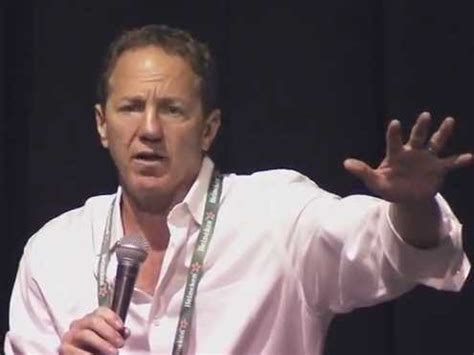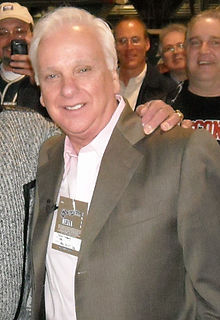A Quote by Noam Chomsky
I am not offering this is a critique of the internet, its just that there are a lot of factors involved. It does offer plenty of possibilities. It also has, it can have, a cheapening effect and I think both exist and I think its true of everything. You could say that about the printing press.
Related Quotes
Desktop publishing was a big innovation that meant small groups or even poor societies could do their own publication without the capital investment in a major printing press. That's a big difference. Same is true of more advanced technologies - it can offer plenty of liberatory possibilities - can - but whether it does or not or whether it serves for coercion depends on socioeconomic decisions.
My take on the whole dot-com bubble was that a lot of people who wanted to make a lot of money got too excited and hyped up the commercial aspects of the Internet prematurely. I think the vision of the Internet as a democratizing medium - as everyone's printing press - is real. We got distracted from that by the mass hallucinations of the bubble.
In one sense, the Internet is like the discovery of the printing press, only it's very different. The printing press gave us access to recorded knowledge. The Internet gives us access, not just to knowledge, but to the intelligence contained in people's crania, access to the intelligence of people on a global basis.
Not only did we survive AIDS, Reaganomics, poverty, racism, gang violence, police brutality, substance abuse - not only did we survive that, we created something endured. And whatever you might think of commercial hip hop now, there's a lot there to like and there's a lot there to critique and there's a lot of things you could say both about. But we created something that endured when we ourselves were not supposed to endure. When we ourselves were not supposed to survive and thrive. So I think that is worthy of respect and preservation and it's US history.
They've been screaming about the death of literacy for years, but I think TV is the Gutenberg [printing] press. I think TV is the only thing that keeps us vaguely in democracy even if it's in the hands of the corporate culture. If you're an artist you write in your time. Moaning about the fact that maybe people read more books a hundred years ago - that's not true. I think the same percentage has always read.
The Internet is the first technology since the printing press which could lower the cost of a great education and, in doing so, make that cost-benefit analysis much easier for most students. It could allow American schools to service twice as many students as they do now, and in ways that are both effective and cost-effective.
Things like social media and the Internet, of course, it's not going away. There is no cure for it. And this shouldn't be just like there shouldn't be, you know - it would have been a tragedy if there was a cure for the printing press. I think it's just that it's an amazing tool that we as a - as an animal are just getting to grips with because it's like we've grown a new ultra powerful limb and we're learning how to use it.
If I make a stupid decision but don't execute it because I'm, say, lazy, then I'm lucky, not rational. However, at other times a person acts for good reasons just as she does what she thinks she shouldn't do, not knowing that they are good reasons. Just like sometimes we are a lot less rational than we think we are, it is also true that sometimes we are a lot more rational than we think we are.
I think at a place like Harvard, our experience, I was involved with, at various stages, in trying to implement a new general education curriculum, our experience was that Harvard's all about specialization, that's not just true of the professori, it's also true of a lot of the undergraduates, too, and they come, they kind of know what they want to do, they select it because they have a strong aptitude for something in particular.




































